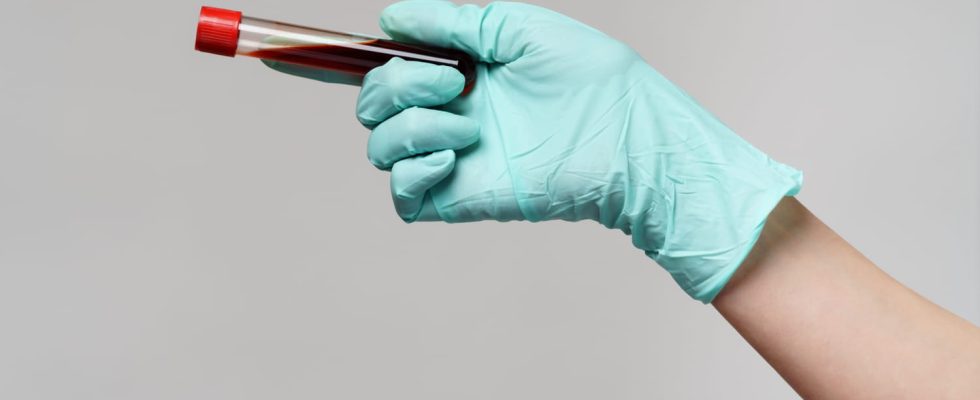Anti-TPO (ThyroPeroxidase) antibodies are part of the anti-thyroid antibodies. Their dosage can reveal thyroid dysfunction or a non-thyroid autoimmune disease such as lupus, rheumatoid arthritis or vitiligo.
Definition: what are anti-TPO antibodies?
There thyroperoxidase (TPO) is an enzyme catalyzing the first chemical reaction leading to the synthesis of thyroid hormones, essential to the body. thyroperoxidase is found within the thyroid gland itself, at the base of our neck. Certain autoimmune pathologies (during which the patient’s immune system attacks the body’s cells) lead to a destruction of thyroperoxidase. This is for example the case of chronic lymphocytic thyroiditis or Hashimoto’s thyroiditis, during which anti-TPO antibodies attack thyroperoxidase. Ultimately, this destruction leads to a hypothyroidism (abnormally low production of thyroid hormones). Thyroid antibodies are autoantibodies specific to the thyroid gland. Anti-TPO are a subgroup of its antibodies. The dosage of anti-TPO antibodies is done through a blood test, when the doctor suspects an autoimmune thyroid disease.
What is a normal level of anti-TPO antibodies?
It is considered that a anti-TPO antibody level is normal when it is less than 35 U/ml, in adults. “But the values depend very largely on the laboratories and the methods used. In addition, the standards change regularly”warns Dr. Magali Cocaul André, endocrinologist in Paris.
What does a high anti-TPO level mean?
Elevated anti-TPO antibody levels may be associated with thyroid dysfunction. “But this is not always the case. If the TSH level is normal and the patient does not complain of clinical signs evoking an underdose of thyroid hormones, there is nothing particular to do. A simple monitoring is enough”, explains Dr. Cocaul André. On the other hand, in the event of thyroid dysfunction, the positivity of the antibodies directs towards an autoimmune cause. The most common hypothyroidism, or Hashimoto-type autoimmune thyroiditis, is generally defined by the association of goiter and elevated anti-TPO antibodies. But these antibodies are not always assayable in the blood. Their negativity does not necessarily eliminate the diagnosis of autoimmune thyroiditis. The positivity of anti-thyroglobulin antibodies, another specific auto-antibody of the thyroid, can then help to make the diagnosis.
► Blood levels of anti-TPO antibodies may also increase in other conditions, such as Graves disease or during certain drug treatments (amiodarone, lithium, etc.). Present at the beginning of pregnancy, they can signal a risk of postpartum thyroiditis. We can also find small quantities in case of non-thyroid autoimmune pathology (lupus, rheumatoid arthritis, vitiligo..).
“There is no particular way to lower the level of anti-TPO antibodies. But there is no direct correlation between the level of antibodies and the level of thyroid hormones. Their level generally tends to fall with the time after treatment of autoimmune hypothyroidism (Hashimoto)“concludes Dr. Cocaul André.
Thanks to Doctor Magali Cocaul André, endocrinologist in Paris.
